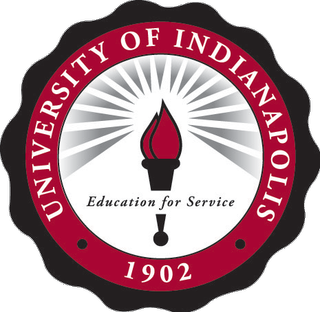Commemorating Juneteenth & a Commitment from the UIndy President’s Cabinet & Provost’s Council

Today the University of Indianapolis joins the nation to celebrate Juneteenth, which is the oldest national commemoration of the ending of slavery in the United States. It was 155 years ago in Galveston, Texas when Major General Gordon Granger brought news that the war was over and the enslaved were free.
This year brings into stark focus the ongoing struggle for civil rights, social justice, and inclusion spanning hundreds of years. The death of George Floyd and other Black Americans has sparked outrage and pain in our communities. We know many of you are feeling a broad range of emotions right now. During these troubling times, we ask that you join us in honoring the spirit of Juneteenth, and create space for hope in your heart that we can work together to heal our society.
As a nation, we recognize the magnitude of the work that still needs to be done. As educators, we are positioned to support students and advance the conversation around social justice and systemic racism to affect the change we so deeply wish to see. Every person has a role to play when it comes to advancing this cause.
All of the members of the President’s Cabinet and Provost’s Council are committed to creating appropriate responses at the University that celebrate diversity, and break down barriers to success for our Black students, staff, and faculty. Voices from our campus community are contributing to a three-year strategic vision to create a more inclusive UIndy. A series of interviews, conversations, and focus groups have already been completed, with much more to come. Your participation in this process is deeply valued and critical to our success.
Earlier this month, Dr. Amber R. Smith, our Vice President and Chief Inclusion & Equity Officer, hosted a virtual town hall discussion that explored the experiences of Black Americans. The profound insights shared there inspired a series of workshops on women of color in the academy, white allyship, faith and justice, and healing space, as well as introductory reading and listening resources. If you are not already thinking about how you can join the conversation, or get more involved, we encourage you to pursue these resources as a starting point.
Through the conversations that have been held over the past few weeks, and thanks to the leadership of Dr. Amber R. Smith, we have identified several areas that we pledge to address in order to make our community more welcoming and open. As an institution, we are committed to accomplishing these goals:
-
Create a dedicated process to increase representation of Black professionals (Faculty, Staff, and Administration) on campus.
-
Create dedicated programming to recruit, retain, and develop Black students through a connected web of scholarships, events, and living-learning communities. Establish summer bridge experiences for students of color to transition to college successfully.
-
Create greater transparency and increase institutional accountability through data transparency (reports and metrics related to progress) as it pertains to retention rates, and academic achievement for our Black students.
-
Empower faculty and staff with specific interventions to help increase student success throughout the academic experience.
-
Create dedicated space for Black students, faculty, and staff on campus. Establish a brave space where bias issues can be reviewed discretely and action can be taken to create a more inclusive, equitable atmosphere.
-
Assess our University’s cultural competencies and create educational programming that is tied to the development of our community.
The University of Indianapolis is committed to building and maintaining an open and inclusive environment, but we must do more. We must intentionally confront structural racism, as individuals and as a collective. We must be honest with ourselves about our own implicit bias and the ways that can impact the people and the world around us. We must start where we are, and challenge ourselves to grow. We all have a role to play.
President’s Cabinet
Robert L. Manuel, President
Stephen H. Kolison, Jr., Executive Vice President & Provost
Michael Cartwright, Vice President for University Mission
Jason Dudich, Vice President & Chief Financial Officer
Kelly Hauflaire, Associate Vice President for Marketing & Communications
Steven Herriford, Vice President and Chief Technology Officer
Lara Mann, Vice President & Secretary to the University
Chris Molloy, Vice President for Advancement
Andrea Newsom, Vice President & General Counsel
Neil Perdue, Vice President & Chief Operating Officer
Amber R. Smith, Vice President & Chief Inclusion and Equity Officer
Kory Vitangeli, Vice President for Student and Campus Affairs & Dean of Students
Ron Wilks, Vice President for Enrollment Services
Sue Willey, Vice President for Intercollegiate Athletics
Scott Young, Senior Associate Director of Athletics for Compliance
Provost’s Council
Mary Beth Bagg, Associate Provost for Administration & Deputy to the Provost
Larry Belcher, Dean of the School of Business
Debra Feakes, Dean of the Shaheen College of Arts & Sciences
Norma Hall, Dean of the School of Nursing
Stephanie Kelly, Dean of the College of Health Sciences
John Kuykendall, Dean of the School of Education
Mary Moore, Associate Provost for Accreditation, Assessment, Education Innovations, & Chief International Officer
Torrey Wilson, Dean of the College of Applied Behavioral Sciences
